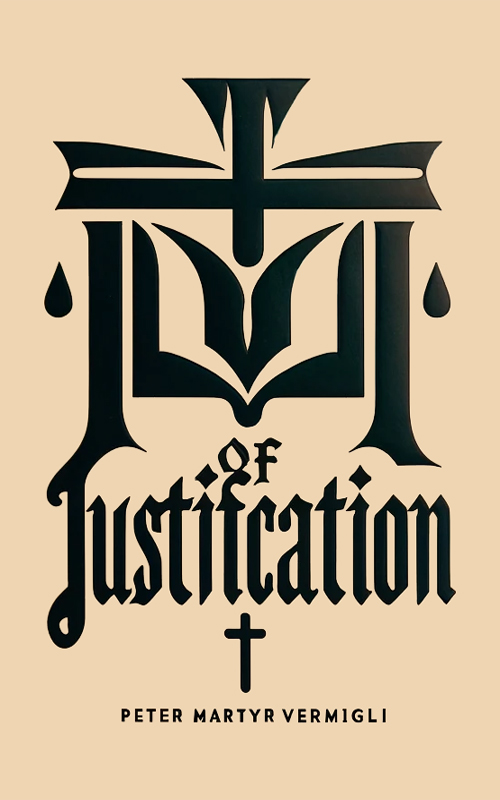 by Peter Martyr Vermigli
by Peter Martyr Vermigli
in ePub, .mobi & .pdf formats
Updated to Modern English
"Of Justification" by Peter Martyr Vermigli offers a comprehensive theological investigation into the doctrine of justification, a cornerstone of Christian faith. In this work, Vermigli delves into the complex nature of justification, arguing passionately for the Protestant view that justification is by faith alone, not by works. This argument is rooted deeply in scriptural analysis, particularly Paul's epistles, which Vermigli interprets with scholarly rigor.
Vermigli begins by defining 'justification' in its theological context, drawing from the Hebrew and Greek languages to enrich his discussion. He explores how God’s act of justifying a sinner involves both an internal renewal through the Holy Spirit and an external declaration of righteousness, emphasizing that this justification is a divine act of grace rather than a human achievement.
Central to Vermigli’s thesis is the rejection of the notion that human works can merit salvation. He systematically addresses various scriptural passages to dismantle the idea that our deeds could ever justify us before God. This includes a profound discussion on the role of faith as the sole means through which believers receive God's righteousness. Vermigli’s exposition clarifies that faith itself, while a necessary response to God’s grace, is not a work that earns salvation but rather the means by which salvation is applied to the believer.
"Of Justification" also tackles misconceptions about the nature of good works, arguing that while important, they are the result of salvation, not the cause of it. He also explores the historical and theological arguments surrounding this issue, providing insights from early church fathers and significant theological texts to support his points.
This treatise is not only a theological discourse but also serves as a pastoral guide, offering believers a deeper understanding of their salvation's assurance and grounding. It is a must-read for theologians, pastors, and laypersons alike, providing a robust defense of the doctrine that stands at the heart of the Protestant Reformation. Vermigli’s work remains relevant today, reminding us of the radical nature of God’s grace and the peace that comes from knowing our justification rests entirely in Christ’s work, not our own.
Peter Martyr Vermigli (1499-1562) was a significant figure in the Reformation, whose scholarly work and theological insights helped shape Protestant thought across Europe. Born in Florence, Italy, he initially joined the Augustinian order and received a thorough education in philosophy and theology. Influenced by the works of Martin Luther and other Reformers, Vermigli adopted Protestant beliefs, leading to his departure from Italy. He held influential positions in Strasbourg, Oxford, and Zurich, where he contributed to the development of Reformed theology, particularly in areas concerning the Eucharist, predestination, and the role of Scripture in Christian life. Vermigli's writings and teachings not only deepened the theological foundations of the Reformation but also fostered dialogue and intellectual exchange among Protestant leaders, leaving a lasting impact on the Christian tradition.
-----
Table of Contents
Of Justification
Faith
The Condition of Men before they are Regenerated
Providence and Justification
No Flesh Shall be Justified by the Works of the Law
Other Scriptures
Some Argue the Works of Non-Believers are Not Sins
Does Arguing Human Inabilty Slander God's Law?
Are Good Works the Cause of Righteousness or the Effects of it?
Repentance the Fruit of Faith
Human Teachings of Divine Revelation
How is Justification Granted, if Not by Works?
Church Councils
Stages of Preparation for Justification
Why the Gentiles Achieved Righteousness and not the Jews
Pighius Argues that Justification Cannot be Separated from Charity or Good Works
Faith Begins with the Holy Spirit
Does Genesis Demonstrate that God Values Works over Faith?
Insights of the Church Fathers and how their viewpoints align with ours on the matter of faith and justification
We Affirm that Justification is by Faith Alone
